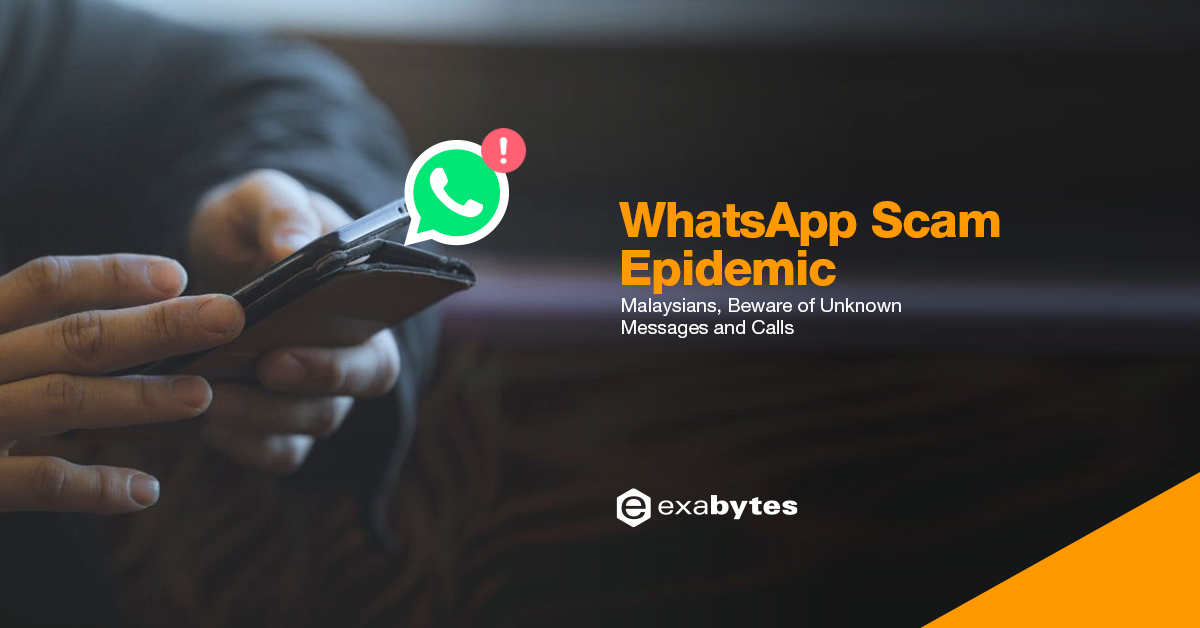NINJA WA SENDER Pro is an incredibly powerful and versatile Chrome Extension specifically designed to revolutionize your WhatsApp marketing. It can effortlessly send bulk messages to your target audience, streamline and manage marketing campaigns, and track responses in real-time. A must-have for WhatsApp marketers like you, aiming to achieve greater efficiency, boost outreach, and enhance customer engagement. Feel free to contact us if you need any support or have questions about Ninja WA Sender Pro. We're here to help!
12 Common WhatsApp Scams to Avoid in 2024
- account_circle ninjawasenderpro
- calendar_month Thursday, 11 Sep 2025
- visibility 14
- comment 0 comment

WhatsApp has become the go-to messaging app for billions of users worldwide, making it a prime target for scammers. With over 2 billion monthly active users, it’s no surprise that fraudsters have found ways to exploit this popular platform. From fake job offers to cryptocurrency scams, there are numerous tactics used by cybercriminals to trick unsuspecting users. In this article, we’ll explore the most common types of WhatsApp scams and provide practical tips on how to protect yourself.
Understanding WhatsApp Scams
WhatsApp scams are deceptive practices where scammers use the app to manipulate users into sharing personal information, sending money, or downloading malware. These scams can range from simple phishing attempts to complex schemes involving impersonation and social engineering. The key to avoiding these threats is awareness and vigilance.
Types of WhatsApp Scams
Here are some of the most common WhatsApp scams you should be aware of:
1. Fake Job Offers
Scammers pose as recruiters offering high-paying jobs without any prior application. They often ask for payment for training materials or background checks, which is a red flag. Always verify the legitimacy of the company before engaging with any job offer.
2. Investment Scams
These involve fake investment opportunities, often related to stocks, bonds, or cryptocurrencies. Scammers may promise high returns with little risk, but these are typically too good to be true. Always consult with a trusted financial advisor before investing.
3. Crypto Scams
Scammers may lure you into investing in fraudulent cryptocurrency projects, promising quick profits. Once you send your money, they disappear, leaving you with no recourse. Only invest through reputable platforms.
4. Dating Scams
Romance scammers create fake profiles to build relationships online before asking for money or personal information. Be cautious of anyone who asks for money or avoids video calls.
5. Real Estate Scams
Fraudsters may offer attractive rental deals or property listings through WhatsApp. Always verify the legitimacy of the property and avoid sending deposits or personal information without proper verification.
6. WhatsApp Gold Scams
Scammers promote a non-existent “WhatsApp Gold” upgrade, claiming enhanced features. Clicking on their links can lead to malware or phishing sites. Never trust unsolicited messages about app upgrades.
7. Fake WhatsApp Apps
Attackers distribute counterfeit versions of WhatsApp through unofficial sources. These apps can steal login details or install malware. Always download apps from official stores.
8. Impersonation Scams
Scammers may impersonate friends or family members, creating a sense of urgency to request money. Verify their identity through other channels before acting on any requests.
9. Verification Code Requests
Scammers may ask for your verification code to access your account. Never share this with anyone, as it grants them access to your account.
10. Phishing Attacks
These involve fake links or attachments designed to steal your personal information. Be wary of any suspicious links or attachments, especially from unknown senders.
11. Tech Support Scams
Scammers may pose as WhatsApp representatives, claiming there’s an issue with your account. Never share sensitive information or follow links from unverified sources.
12. Lottery and Giveaway Scams
You may receive messages claiming you’ve won a prize, requiring you to pay a fee or provide personal information. Always verify the legitimacy of such claims before responding.
How to Spot a WhatsApp Scam

Identifying a scam can be challenging, but there are several red flags to watch out for:
- Unsolicited Messages: Be cautious of unexpected messages from unknown numbers.
- Urgent Tone: Scammers often create a sense of urgency to pressure you into acting quickly.
- Requests for Money or Information: Legitimate organizations rarely ask for money or personal information via WhatsApp.
- Generic Greetings: Messages like “Hi friend” or “Hello dear” may indicate the sender doesn’t actually know you.
- Suspicious Links or Attachments: Be wary of unexpected links or files that could lead to phishing sites or malware.
- Poor Spelling and Grammar: Errors can be a sign of a scam, as scammers may not be professional.
How to Protect Yourself from WhatsApp Scams

Protecting yourself from WhatsApp scams involves a combination of vigilance and security measures. Here are some steps you can take:
1. Verify the Sender
Always check the sender’s identity before engaging with any message. If it’s from an unknown number, consider blocking it.
2. Ignore Money Requests
Avoid sending money in response to a request on WhatsApp. If you suspect a scam, report it immediately.
3. Never Share Sensitive Information
Avoid sharing bank details, Social Security numbers, or passwords over WhatsApp or through linked websites.
4. Enable Two-Factor Authentication (2FA)
Two-factor authentication adds an extra layer of security, making it harder for scammers to access your account.
5. Report Suspicious Messages
Flagging suspicious messages can help WhatsApp identify and remove scammers from the platform.
6. Keep Your Device and App Updated
Regular updates patch security vulnerabilities, reducing the risk of successful attacks.
7. Use a Robust Antivirus
Comprehensive security apps like Norton 360 Deluxe can help block malicious websites and detect scams.
What to Do if You Fall for a Scam
If you fall for a WhatsApp scam, take the following steps immediately:
- Block the Sender: Report and block the sender on WhatsApp to prevent further contact.
- Notify Your Contacts: Inform your contacts about the scam to help protect them.
- Report the Scammer: Report the scam to the FTC at ReportFraud.ftc.gov and the Internet Crime Complaint Center (IC3).
- Update Your Privacy Settings: Adjust your WhatsApp privacy settings to limit who can see your profile and add you to groups.
- Monitor Your Credit: Closely monitor your credit with a credit monitoring service to respond to fraud quickly.
FAQs About WhatsApp Scams

Q: Is WhatsApp safe to use?
A: WhatsApp is generally safe due to its end-to-end encryption, but it’s important to remain vigilant against phishing and social engineering scams.
Q: Why do scammers use WhatsApp?
A: Scammers exploit WhatsApp’s wide user base and perceived trust. Its encryption also makes it difficult for authorities to monitor conversations.
Q: Can I control who sends me WhatsApp messages?
A: You can’t prevent unknown numbers from messaging you, but you can block unwanted contacts and adjust privacy settings to limit who can see your profile.
Q: Why do I get random WhatsApp scams?
A: Scammers use automated tools to send messages to large numbers of people, often obtaining phone numbers from data breaches or random number generation tools.
Q: How can I spot a WhatsApp scam?
A: Look for red flags like unsolicited messages, urgent tones, requests for money or information, suspicious links, and poor spelling and grammar.
Q: What should I do if I fall for a scam?
A: Block the sender, notify your contacts, report the scam, update your privacy settings, and monitor your credit closely.
Q: How can I protect myself from WhatsApp scams?
A: Verify senders, ignore money requests, never share sensitive information, enable 2FA, report suspicious messages, keep your device updated, and use a robust antivirus.
Conclusion
WhatsApp scams are a growing concern, but with the right knowledge and precautions, you can protect yourself from falling victim. Stay informed, be cautious, and take proactive steps to secure your account. Remember, the best defense against scams is awareness and vigilance. By staying alert and taking the necessary measures, you can enjoy the convenience of WhatsApp while keeping your personal information safe.
#whatsappautomation, #bulkmessage, #whatsapptraining, #latestfeatures, #whatsapptrends, #businessstrategies, #messageautomation, #whatsappmarketing, #businesshack, #bulkmessaging, #trainingtutorial, #latestfeatures, #whatsapptrends, #businessstrategies, #messageautomation
- Author: ninjawasenderpro




























At the moment there is no comment